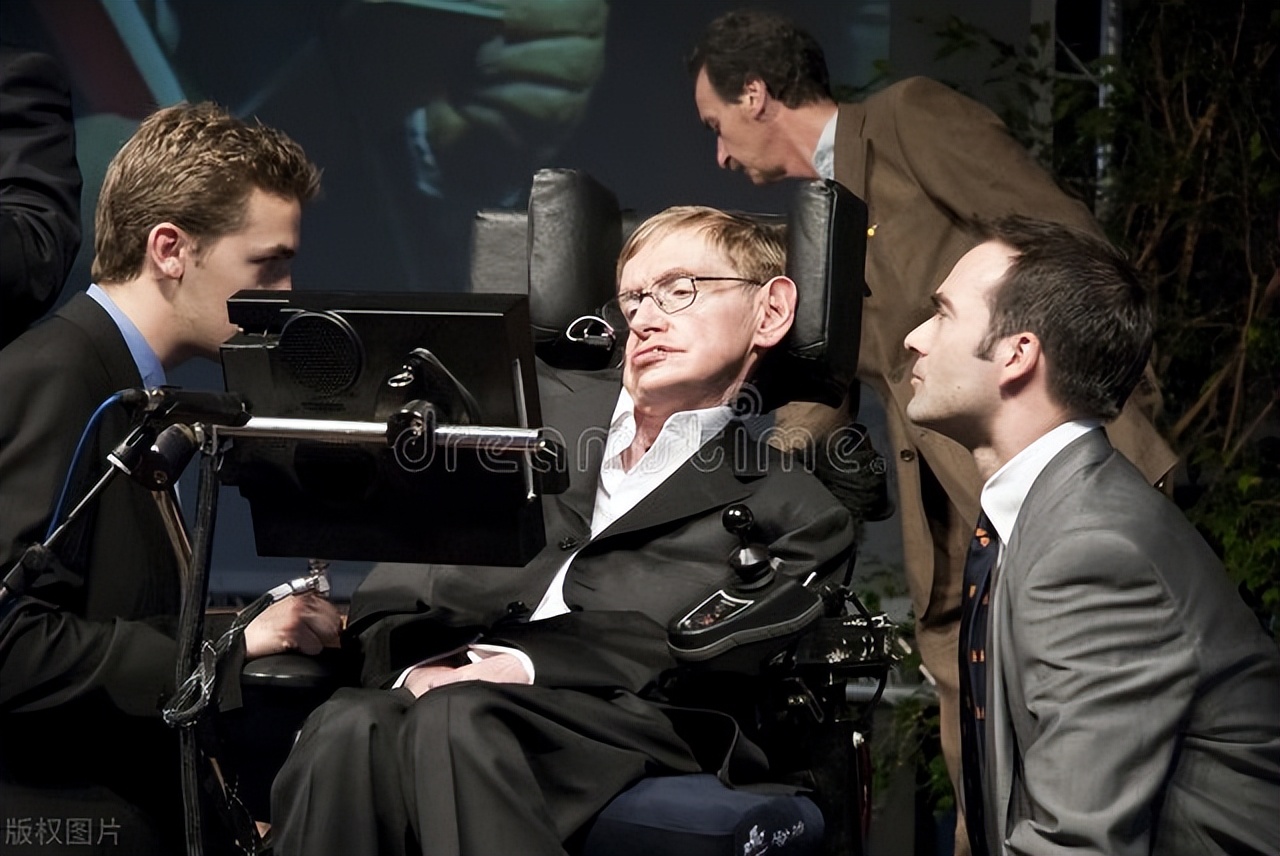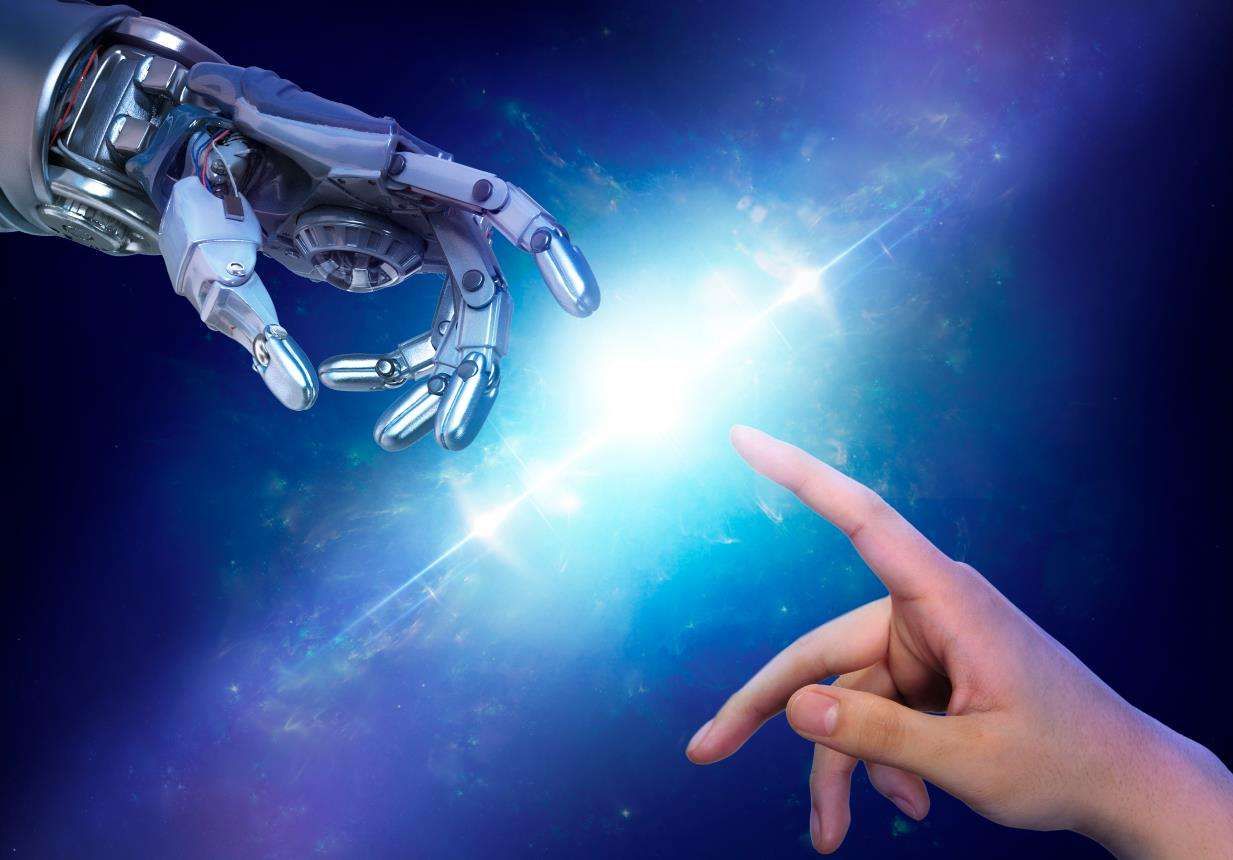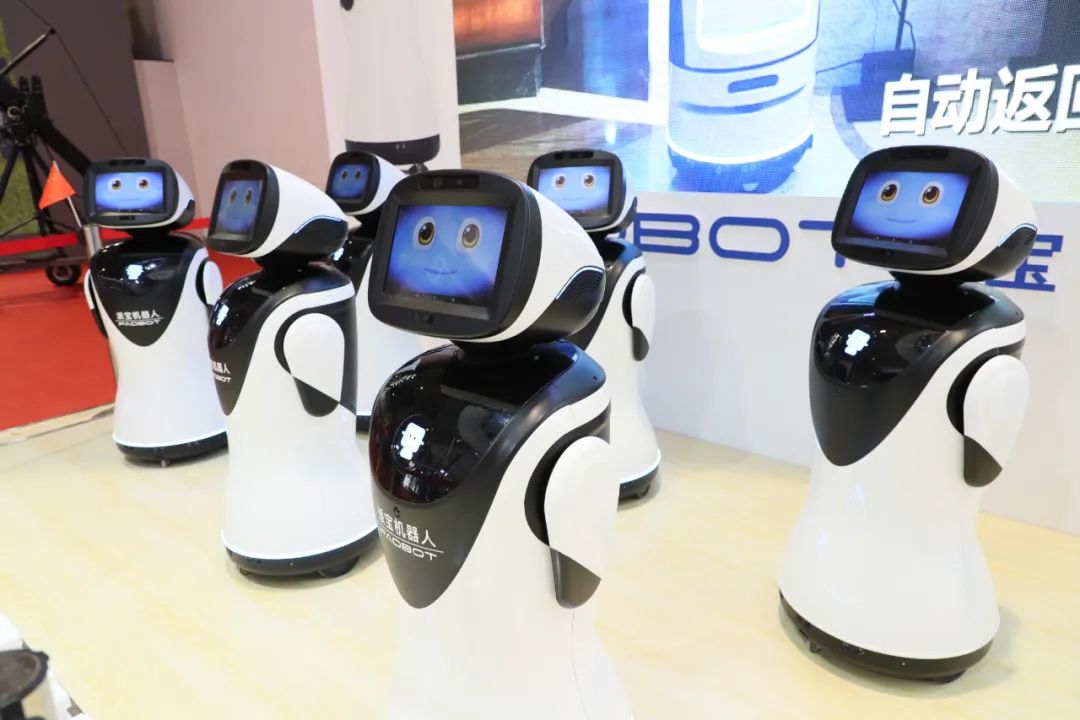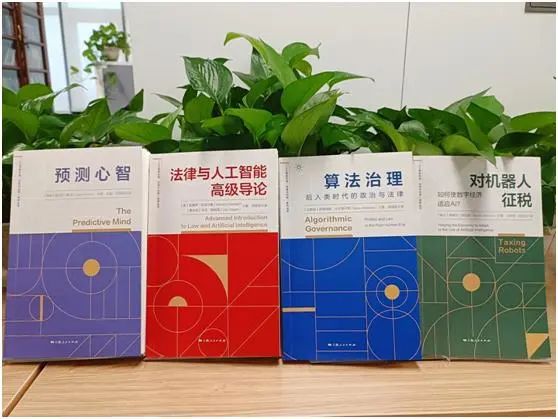Intelligent Philosophy: Challenges And Confrontations Of Human Ethics At The Frontier Of AI
Intelligent Philosophy: Challenges And Confrontations Of Human Ethics At The Frontier Of AI
Faced with the aggressive development of AI, the ethical issues of AI have become the focus of the times. This article focuses on emphasizing different perspectives of "Chinese and Western culture" and "science and humanities".
Big Data Digest welcomes all kinds of high-quality manuscripts
Please contact
Faced with the aggressive development of AI, the ethical issues of AI have become the focus of the times. This article focuses on emphasizing different perspectives of "Chinese and Western culture" and "science and humanities".
1. The ethical issues of AI have become the focus of the times
Today's AI has turned some topics considered sensational in the past into unavoidable serious research. Not only are traditional scientific theories and technical practices and the relationship between the two are being reconstructed, but challenging fusion problems have arisen between the two distinct fields of "science" and "humanities". Faced with the aggressive development of AI, front-line scientists have to make expedient answers. The "Asiloma Artificial Intelligence Principles" (AI) formulated by the "Future Institute of Life" (FLI) can be regarded as an ethical emergency program for front-line scientists.
On the other hand, traditional philosophy, anthropology, ethics, etc. cannot quickly enter the forefront, and the frenzy stimulated by the industry, economy, finance, and social fields that are eager to be in a state consciousness. Governments have begun to raise and take action on the development of AI and industrial creativity as strategic issues of global competition.
Different from the research and development of AI in Western countries, Chinese culture attaches importance to the centrality of human nature, which allows us to have a special cultural position in the relativity of "Chinese and Western cultures" and "science and humanities". Can we not lose opportunities in the interweaving of such two "two cultures"? We would like to raise this question here. Faced with the human and machine ethical relationships that are closely related to human interests, we hope to study the ethical issues of AI platforms under a large pattern.
The development of AI and Robot has had an impact on the status and value of human beings themselves, and this has been a long-standing concern. A little earlier, many funds and various research institutions have been focusing on AI ethics issues. Among them, the "Future of Life" founded by some famous artificial intelligence issues experts and professors as volunteers published an open letter on January 11, 2015: for and : an Open (Open letter: Research for robust and beneficial artificial intelligence), proposing that "our AI must do what we want them to do", that is, the slogan of "helpful artificial intelligence" (AI). The same high attention to such issues has previously attracted widespread attention and serious discussions and actions from both inside and outside the industry, such as: IEEE for in and (IEEE Global Initiative on Ethical Considerations of Artificial Intelligence and Autonomous Systems), AAAI 2008-09 Panel on Long-Term AI (AAAI 2008-09 Presidential Committee on the Future of Artificial Intelligence), on to and (Artificial Intelligence Cooperation Benefits People and Society), AI100 (A Centennial Research Program on Artificial Intelligence), and of Fund (Artificial Intelligence Ethics and Governance Foundation), Allen for (Allen Institute of Artificial Intelligence), etc.

Earlier, before the emergence of physical robots, there were the famous "Three Rules of Robots" by science fiction novelist Isaac and many additional principles later:
LawⅠ:A Robot may not a human being or, , allows a human being to come to harm.
The first law: robots must not harm human individuals, or stand idly by witnessing human individuals that will suffer danger;
LawⅡ: A robot must obey given it by human where such would with the first law.
The second law: the robot must obey the command given by the person, with exceptions when the command conflicts with the first law; Law
Ⅲ: A robot must its own as long as such does not with the first or law.
The third law: Robots should protect their survival as much as possible without violating the first and second laws.
These three laws actually regard machines as the principle of design and manufacturing of machines, and do not consider the problems of super artificial intelligence such as "autonomous ability" or even "self-awareness". Now, the "highly autonomous artificial intelligence system" (AI) or what is called "strong artificial intelligence" or "general artificial intelligence" (AGI) seems to be knocking on the door. How can humans deal with it?
In this sense, it can now be said that the cutting-edge and cutting-edge research conducted by any large company, large enterprise or academic organization for research and development of artificial intelligence are actually ethical issues related to artificial intelligence in essence.
2. The core idea of "Asiloma's Artificial Intelligence Principles": AI
The "Asiloma Conference" (2017) held in California, USA in January 2017, including 844 experts in the fields of artificial intelligence and robots jointly signed the "Asiloma Artificial Intelligence Principles" (AI), calling on the work in the field of artificial intelligence around the world to abide by these principles and jointly safeguard the future interests and security of mankind. The core idea of the "Asiloma Artificial Intelligence Principles" is AI, which we interpret as "AI for humans and humans."
In the face of these complex and urgent situations, what humans can respond to is based on the basic ethical beliefs formed in human history and long-term ethical research results. Faced with the urgent ethical problems faced by the reality of the rapid development of artificial intelligence, a temporary answer from non-professional ethics scientists: "Asiloma Artificial Intelligence Principles". Out of the traditional professional ethics of scientists, based on human conscience and rational concern for the future of human beings, they took the ethical problems of researchers and institutions directly involved in artificial intelligence as the main object, and expressed the ethical concept of AI in scattered in the 23 articles of "Asiloma Artificial Intelligence Principles", among which the programmatic entries are as follows:
The first "Research Purpose" determines the principle of artificial intelligence research to create AI and Robot that serves people and is controlled by the control of humans. This principle is the basic ethical guarantee between humans and machines, and this guarantee is first reflected by the ethical consciousness of researchers and developers and is observed in research and development; therefore, the 16th "Human Control" expresses a deep expectation.
The second "Research Fund" conservation and protection of the premise of human resources, will and value systems.
Item 10 "Attribution of Value", Item 11 "Human Values", and further improving the ownership of the value of machines to humans is the design principle of advanced artificial intelligence. Item 9 "Responsibility" clearly applies this human-machine ethical relationship as a responsibility to the researchers; Item 12 "Personal Privacy" and Item 13 "Freedom and Privacy" reflect human dignity.
The 6th item "Safety" is the conditions for the protection of machines to humans set for research work. The 7th item "Fault Transparency" and the 8th item "Judicial Transparency" are ethical requirements for the existing work system and legal system of artificial intelligence research and development.
Item 14 "Share benefits", Item 15 "Common Prosperity", Item 17 "Non-subversion", Item 18 "Artificial Intelligence Arms Race", These are the manifestations of the ethical principles of human society in the field of artificial intelligence research.
The above contents are based on the human and machine ethical relationship between human and human nature, "Asiloma Artificial Intelligence Original
Then the last 23 "common public interests" even include "super", but this is still considered as the overall interests of all mankind, which is artificial intelligence (AI) for the value and interests of mankind. This premise of maintaining human ethical status at different levels in the field of artificial intelligence has been repeatedly stated, and it is based on the simplicity of human morality and human dignity. However, what is the essence and ethical status of things that are different from "nature" and are different from humans in development, which have in their development, and what is the essence and ethical status of things that are different from "nature" and are different from humans themselves?

The "Asiloma's Principle of Artificial Intelligence" is the awakening of the ancient human ethics spirit in the world's drastic changes, and an effort to defend human status and dignity in the world. The "Asiloma's Principle of Artificial Intelligence" is actually a concentrated expression of all long-term observations and thinking about the immeasurable impact of AI and Robot on human beings caused by the development of AI and Robot. In a more profound sense, it can be seen as a serious reflection of the knowledge group represented by scientists and the conscience of human beings on the nature, status and value of human beings themselves.
3. Basic theoretical issues of ethics on AI platform
The most fundamental problem in the ethics of artificial intelligence is the ethical relationship between man and machine, and this ethical relationship between man and machine depends on the understanding of the meaning, value and status of "human". This is the oldest and most profound philosophical problem. In fact, this is also the most fundamental problem in Eastern and Western philosophical thoughts by ethics. The discipline of philosophy and many knowledge disciplines, especially the development of science and technology since modern times, has caused philosophy and ethics to be constantly differentiated and dissipated into a wide range of disciplines and theories. When modern people almost forget these ancient wisdoms, the huge expectations, confusion and even fears faced by artificial intelligence force us to push the ethical problems of artificial intelligence to the most important position.
In the most cutting-edge field of artificial intelligence research, the most confusing question is: Is there any "artificial intelligence" that is higher than human intelligence, the so-called "general artificial intelligence", "strong artificial intelligence", "advanced artificial intelligence" or "super artificial intelligence", and even the new "superman" (Nicethells), "the animal that becomes a god" (Yuval Harari) that integrates humans and super intelligence...? The "Asiloma Principles of Artificial Intelligence" recognizes, but believes that this is an undeterminable problem. To attribute this problem to "uncertainty" is just a witty avoidance, that is, the essence of this problem is: in the relationship between man and artificial intelligence, does this ethical relationship between man and machine based on basic human ethical beliefs exist? Therefore, everything seems to return to the oldest philosophical and ethical questions, what are our basic beliefs and knowledge of ethics?
So far, the entity construction of artificial intelligence is mainly based on the laws of physics. There is no question of whether physical entities obey ethical principles or not. However, the essence of artificial intelligence based on physical entities is different from the intelligence of humans based on living entities. This has always been the most difficult problem in human knowledge theory. People have been waiting for answers. But today, the ethical problems of artificial intelligence have forced scientists to make a temporary answer to deal with the basic ethical problems in the research and development of artificial intelligence as scientific and technological research activities. The "Asiloma Artificial Intelligence Principle" is just an emergency solution. Special theories such as philosophy, ethics, and anthropology must directly study the general nature of artificial intelligence, the ethical relationship between people and machines, as well as the intelligence, emotions, and consciousness of people, and elevate the technical relationship between people and machines to the theoretical height of ethics.

This is a serious challenge to philosophy and ethics. In a sense, this is the real battlefield for the challenges to people's status and future brought about by the rapid development of artificial intelligence.
The first philosophers in human history were also scientists. The ancient Greeks mixed the issues of science, philosophy, religion and ethics to discuss. After the Hellenistic era, global religions emerged, and religion had the essence of ethics. In history, ethical problems in social reality were mainly borne by religion. However, religion did not answer human ethics problems, but only gave the problem of the ultimate essence of human beings to God. Religion made the transition from secular people to divine personality as its ultimate goal. Therefore, religion could not replace ethics with the secular world.
The accumulation and progress of human knowledge and the development of science and technology have enabled modern people to enjoy unprecedented material "happiness", but knowledge and technology themselves have become a matter that is both objective and subjective. Pope once described this special object using the concept of "World 3", but the "World 3" theory has not received strong support and continued to be developed in depth. The difficulty is that the "World 3" theory is just a conceptual system and is not in the systematic framework of traditional philosophy. Pope did not provide a three-party relationship different from the "master and object" relationship in traditional philosophy, so the relationship between people and knowledge, tools and technology has not been studied in depth and systematically.
Today, the development of artificial intelligence has covered and penetrated deeply into all things in human society, and has been directly exposed to the intelligence, emotions, and consciousness that humans have always believed to be exclusive. The intelligent relationship between artificial intelligence and humans has become a challenge to human value and significance. The most cutting-edge research on artificial intelligence has become the theoretical frontier of ethics. Such problems are not faced and can be dealt with by individuals, collectives, institutions, enterprises or even individual countries. Obama pointed out in a joint interview with Wired magazine that it is indispensable to play a role in AI development.
Today, researchers, groups, institutions, and enterprises have continuously adjusted, combined and reorganized different R&D platforms, and even national R&D platforms emerged, the ethical theory and practice of artificial intelligence have actually become the most important public research topic on AI R&D platforms. It is recognized that building the ethical research of artificial intelligence as the cutting-edge theory of the platform is one of the most basic and basic tasks of platform construction.
4. Frontier ethical issues
Lao Tzu's "Tao Te Ching" and Aristotle's "Nicomacro's Ethics" ( ) represent human beings' profound thoughts on their own state of existence and social mode of survival. In this simple human consciousness, people are always aware of the unconscious of the only self-conscious person in the world. Although "anthropocentrism" and especially the narrow "strong anthropocentrism" have been widely discussed or criticized, "man is the measure of all things" (Protagora) and "man-made natural legislation" (Kant) are always the dignity of man and man, but this ancient belief is facing crisis today.

If empirical science studies the world's "what" and "how it is", then ethics studies the "how it is" of society and what people should do. These two sciences have always been the most representative disciplines in the two separate fields of "science" and "humanity" (the so-called "two cultures"). However, the properties of computers, artificial intelligence and robots that have emerged and developed rapidly from the field of scientific research have become an erosion of the core concepts of human ethics. Machines "having" human intelligence, or machines "having" human nature, which seems not to be a human fantasy. If the dignity and status of "human" are shaken by the development of human society themselves, it is not too much today. It is in this sense of ethics that the ethical issues of AI and Robot have become the focus of everyone's attention today.
The core concept of ethics is human social behavior, which is a moral philosophy in practice. The ethical concerns of AI and Robot actually have profound levels beyond this essence of human ethics:
(1) How can people (research, developer) implement traditional human morality and ethical beliefs in their research, manufacture, and develop AI and Robots, so that they can obey or even have human ethical principles;
(2) Do people have this kind of transcendent ability to do this?
(III) Are there or any ethical norms in AI and Robot over the physical laws that govern them? What's more, for example, can the so-called "science fiction model" super-ASI ask such an ethical question?
In these complex and even unimaginable situations, we have to further ask: Are there any moral immoral or immoral issues of machines? Is this a human problem, or is it a problem between AI and Robot or a common problem of "we"? If we imagine this way, perhaps one day machines may have human or even their own nature different from human self, and even their thinkers and philosophers, who are human-like humans or vice versa, we are just subclasses of the human class?
Before we transcend ourselves as the subject of this "human" or even "lifelike" we cannot and cannot conceive these problems in a substantial way. What is most urgent now is whether we have the ability to empower AI and Robot with a moral mind? Just as God could not have the nature of being exempted from sin when he created man, can we have this power that seems to be a power beyond God?

We can only explore on the cornerstone of the concept of human ethics that we already have, in this sense, we only have human ethics, and all our concerns, thinking and actions are human ethics. In this sense, AI is not the morality and ethics of machines, but just the ethical principles of human beings in researching and developing AI and Robot. Whether human beings can give human ethical principles to machines is an uncertain question. What we can do today is to adhere to the ethical bottom line of our human beings. Therefore, the "Asiloma Artificial Intelligence Principle" is the moral call of human beings and the sense of crisis of human nature. In this sense, the "Asiloma Artificial Intelligence Principle" is the embodiment of human dignity.
5. Research on artificial intelligence ethics from a global perspective
The "Asiloma Artificial Intelligence Principle" regards the ethical issues of participating researchers and institutions as the main project, and avoids the essential issues of the relationship between human and machine as an uncertain issue. On the one hand, they wait for the continuous exposure and gradual resolution of these essential issues in the development of artificial intelligence. On the other hand, they look forward to the modern revival of philosophy and ethics and the integrated development of theories about science, technology and the future of mankind and the world with a renewed vision.
The future of human uncertainty is always an lingering shadow. From the prophecy of the Christian "apocalypse" to the Western irrational thoughts of "God is dead" (Netzsche) to the "man is dead" (Foucault) and today's guess of "the end of mankind" seems to be the sound of increasingly shaking footsteps. Can our culture and civilization be reborn in a new transcendent ethics?
Descartes said: "I think, so I am there." This is actually based on the scientific and rational skepticism and critical spirit in modern times toward the world and people themselves, that is, the subjective attitude of the subjective world, one of the dualism, toward the objective world, including itself, rather than a scientific explanation. Moreover, this subjective attitude does not equal the relationship between "I think" and "I am there". Even if there are countless research results in related aspects such as physics, physiology, and psychology, it cannot explain how one's own objectivity becomes the subjectivity of consciousness. Therefore, Western culture cannot be without a transcendental God. Apart from these, except for thought or consciousness itself, we cannot observe "thoughts" externally. We can only intuitively or realize "thoughts" and think "thoughts". Although we do not have similar difficult-to-understand quantum mechanics about unobservable "quantum states", Chinese philosophy or Chinese thought has always insisted that the reflection and transcendence of "thought" on the subject's inner (internal "mind") nature is the essence of "thought" of the uninterrupted (inferior) stepless (inferior). Only in this essence can we enter the path of understanding human "intelligence". Therefore, even if there is advanced or even higher-level artificial intelligence, it must be in "behavior" such as "thought" that surpasses oneself, and the Chinese thought cultivated by Chinese culture itself has this inherent temporal essence.
It is precisely because Chinese traditional culture has the essence of humanity and humanity that we can directly treat the ethical problems of artificial intelligence as essential ethical problems on the basis of inheriting traditional Chinese and Western theories and theories. Essential ethical problems are essential problems of humanity, while human beings are essential uncertainty, and the relative nature of uncertainty is certainty. Research on uncertainty problems can be carried out at different levels. Only in the research and integration of various complex relationship patterns at the same level from certainty to certainty can we have hope of achieving real progress and progress.
References:
AI
()
on Long-Term AI
(
us/um///-2009.htm)
AAAI 2008-09 Panel on Long-Term AI
()
IEEE for in
and
()
for and :
an Open
()
on to and
()
Zhou Jianming, Liu Yu: Intelligent Philosophy: Ethical Issues of Artificial Intelligence (AI) Online Article
Zhou Jianming: Modern Ethics and Confucian Culture—Complete Chinese and Western Culture—Modern Article 1 Online Article





